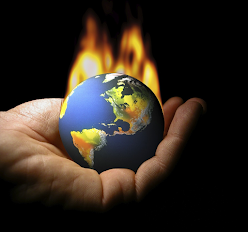Saving our Planet
When I was growing up, I never heard anyone talk about
climate change. My mother never wasted water or food, and we reused paper bags, newspapers and just about everything. But, it was based on frugality, rather than awareness of the fragility of
the earth’s resources.
When I became aware of the global crisis and what it means
for the future of our planet, I started to recycle everything and be more
concerned about the future of our environment. So, I was very interested in the
recent COP27 meeting in Egypt, where over 100 nations gathered to make decisions
regarding the urgency of taking action globally. Although they did not make much progress on greenhouse gas pollution solutions, they did agree to a proposal to
provide private money to poorer countries to develop clean energy action plans.
This is certainly progress. Wealthier nations agreed to
provide private funds to developing countries that have been devastated by
flooding, aridity, pollution, and other destructive conditions. Countries that
are dealing with starvation, lack of clean water, deprivation of land, and war have few resources to
construct or develop conservation facilities.
Since we are all part of the human community, we are called
to care for one another. An important way we do this is by improving living
conditions and providing essential aid to impoverished countries. Climate change affects everyone, but
wealthier nations are more often the
cause of the suffering experienced by poorer countries by their overuse of
fossil fuels, water pollution, destruction of land, and other wasteful activities.
So, this decision is not purely generosity, but rather a more just sharing of the earth's resources.
While it is unfortunate that little progress was made to meet the Paris
agreement goal of limiting global warming to 1.5 degrees Celsius, this was
still a significant achievement. But, we need to keep demanding more to save our planet.




Comments
Post a Comment